Belarus: The Right to Transition
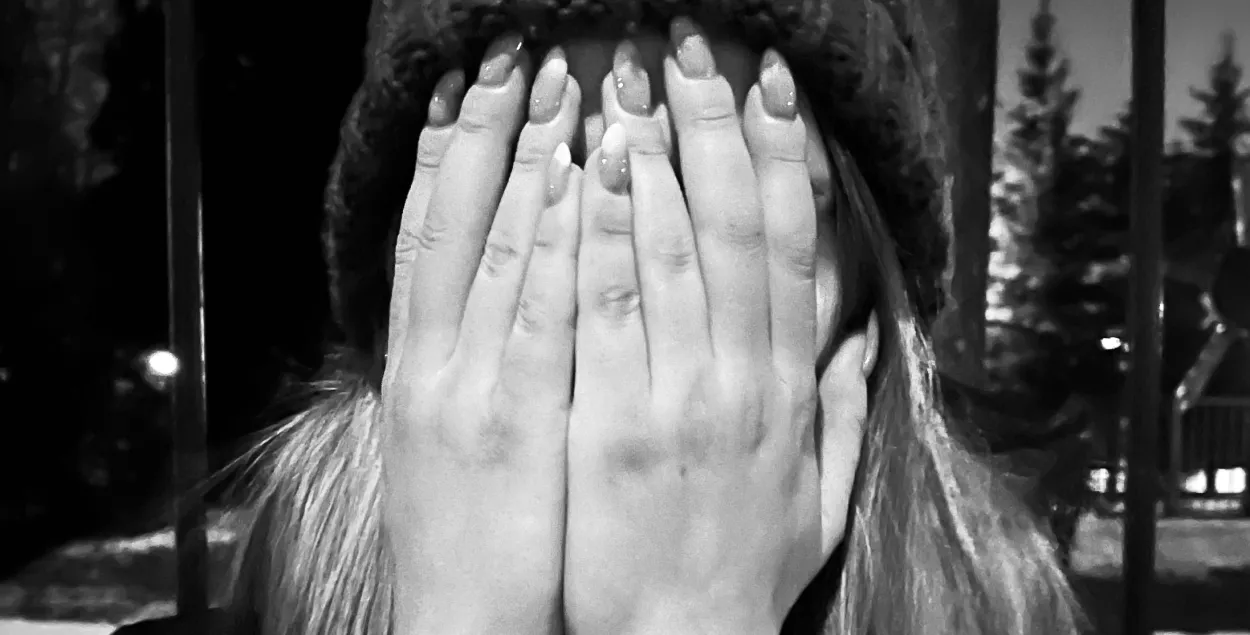
Christina, 23, transgender woman from Belarus
Call me Christina. I am 23 years old. I am a transgender woman. I don't want to give my real name and show my face. In modern Belarus, I don't want...
The increasing repression of LGBT+ people is particularly dangerous for transgender people. Their lives are fraught with additional stresses: changing documents, surgeries, work and socialisation problems.
The transgender community is closed and they don't talk much about themselves. But that doesn't mean they don't need our support.
"Symbiosis of fascism and LGBT"
The LGBT+ community has been ignored rather than suppressed by the Belarusian authorities. But amid the political crisis, transphobic and homophobic discourses have intensified.
LGBT+ people have been stigmatized for their individuality, the manifestation of which is so feared by our authorities. They represent an alternative order based on change and movement rather than rigidity and anachronisms.
The leader in planting trans and homophobia has always been the newspaper "SB. Belarus Today", but "Minskaya Pravda" has recently competed with it. In 2022 its website mlyn.by published 14 articles generously rewarding LGBT+ people with made-up negativity. Previously, in 2021, were published only four.
"Stoned transgenders", "crested LGBT trolls", "criminals, migrants and the LGBT community", "people of traditional sexual orientation contain perverts", "The West is a symbiosis of fascism and LGBT" — the tone of the articles is striking in its aggressiveness, the journalists of the publication actively use stigmatizing and discriminating statements without citing sources of information.
This is how the public is persuaded of the danger allegedly posed by LGBT+ people, making it clear that such people cannot normally exist in society.

"Last year every second publication on LGBT+ in the Belarusian media contained hate speech," — says Oleg Rozhkov, media expert and co-founder of the human rights organization “Journalists for Tolerance”. "However, only 19 percent of all publications on the topic touched upon the life and situation of LGBT people in Belarus".
This means that the topic of LGBT+ in the Belarusian media appears more often in a non-Belarusian context. Examples from newepaper “Minskaya Pravda”: "How Germans feel about LGBT propaganda", "In San Francisco poor transgender people will receive benefits", "Will chubby banders turn into transgender people?"
Experts from “Journalists for Tolerance” have been monitoring hate speech in the Belarusian media for years. According to their data, before the coronavirus, only every 25th publication on the subject supported discriminatory attitudes towards LGBT people. After the first wave — already every seventh, after the outbreak of political crisis — every fifth, in 2021 — every fourth, and in 2022 — almost every second article contained expressions of hate speech.
"There is purposeful incitement of xenophobia towards the "collective West" and the liberal-minded population inside Belarus. It is no secret that the support of vulnerable groups, including LGBT+, is carried out mainly by the liberal community," — explains Rozhkov.
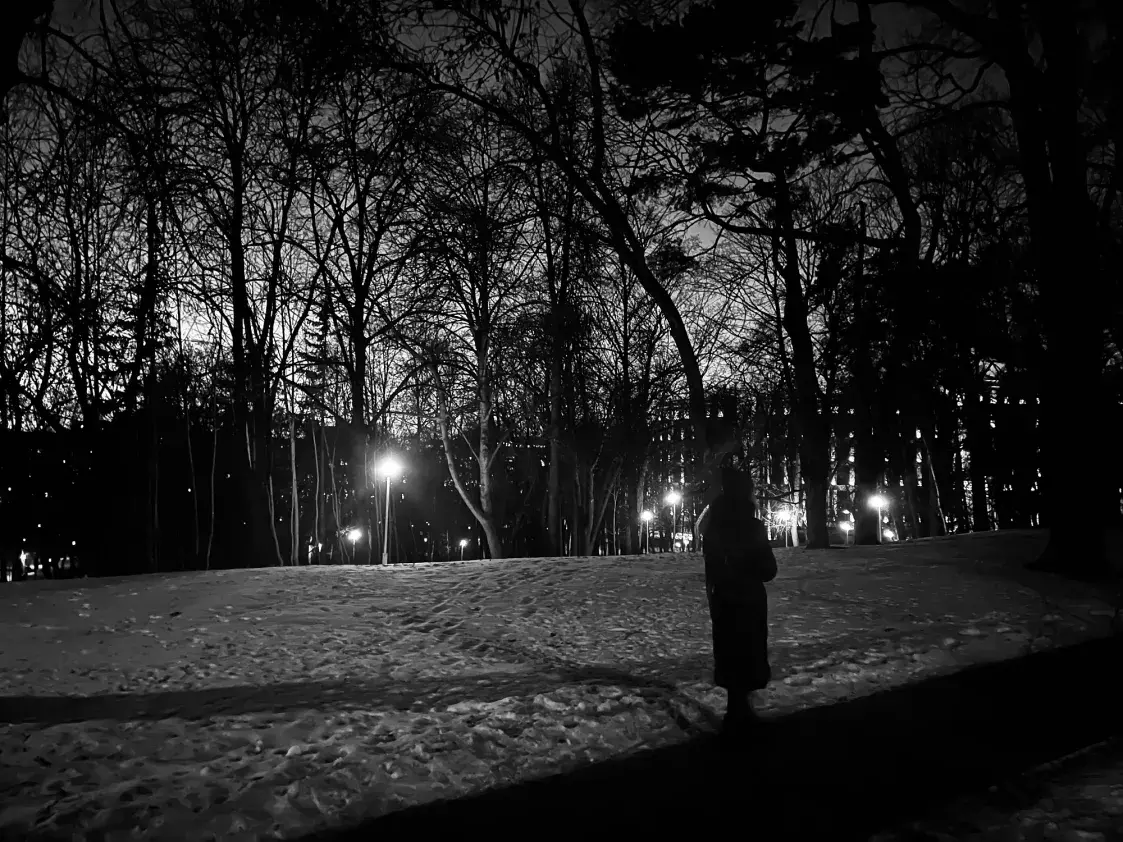
Transgender people start saying "I'm a girl" or "I'm a boy" from a very young age, well, being the opposite from birth, naturally.
I was already sure I was a girl at the age of 6, but I was afraid to tell adults. Because even at that age I felt that it was something different, something wrong, it shouldn't be like that.
So I lived with my depressive thoughts alone, and only in my imagination was I who I wanted to be. Every once in a while, I would give free rein to my desire for something feminine in my clothes to satisfy my "ailment".
From discrimination of the part to discrimination of the whole
Politicians suddenly remembered that Belarus has "family values, family traditions and Orthodoxy" and the state media started talking about the need for a law against LGBT+ propaganda. But such legislative practices pose a threat to all of us.
"Laws that target a small, vulnerable part of society always create a taint of permissiveness," — said Daniyar Orsekov from Transgender Europe (TGEU), — "This allows the whole institution of human rights to be undermined within the country and opens new opportunities for stigma and discrimination against other members of society."
TGEU is an organisation founded in 2005 and has established itself as the legitimate voice of the trans community in Europe and Central Asia. It describes its mission as strengthening the rights and well-being of trans people.

Daniyar Orsekov points out that by agreeing to discriminate against part of society, we all become vulnerable to discrimination. Such laws foster an atmosphere of suspicion and fear in society, block the possibility of open public debate, and are used to create an enemy image within society. They reinforce the stigma against LGBT people, forcing society to forget that LGBT people are equal citizens and residents, they are brothers, sisters and children.
This year, the Belarusian state media continued the policy of stigmatising vulnerable groups. The same “Minskaya Pravda” at mlyn.by published an article "LGBT as the tip of the iceberg". It deliberately identifies LGBT+ people with people who are likely to commit child abuse or become drug addicts.
Hungary has had a law banning LGBT propaganda among minors since 2021, and experts note that Hungary's human rights record has deteriorated significantly over the past decade, especially with increased restrictions on LGBT+ rights.
Nevertheless, when that same year the Hungarian TV channel PestiTV allowed a show in which the host humiliated transgender people, it ended up in court and a fine for the TV channel.
In Belarus, such a situation is impossible in today's reality. But, as Oleg Rozhkov points out, with a view to the future, we must record all violations of human rights by the authorities.
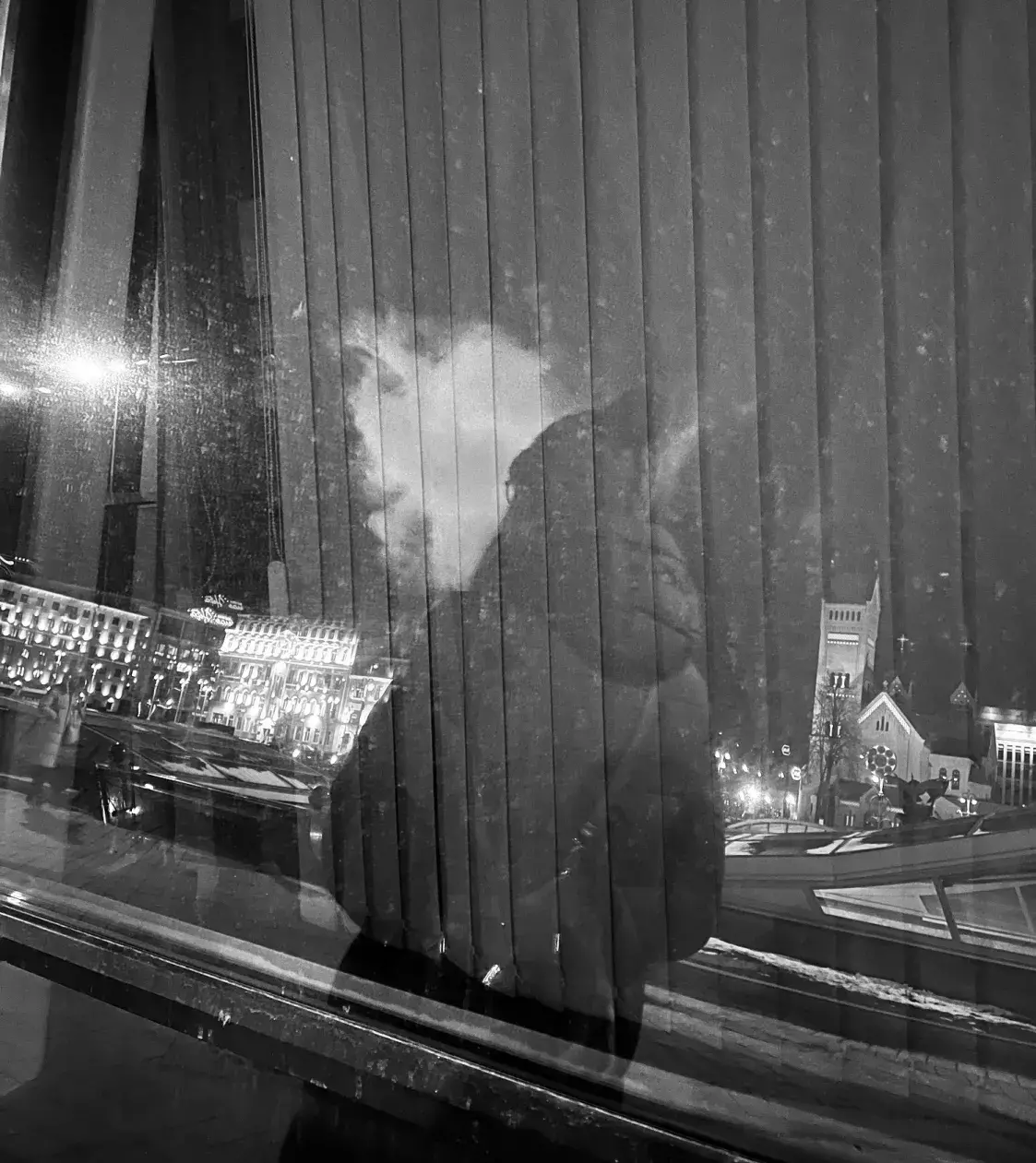
At the age of 17, I gradually began to socialise into the gender in which I was comfortable. I bought a wig and women's clothes and started to leave the house looking like that — at first, only in the evenings when it was dark. I became even more convinced that I needed it. At the age of 21, I started the process of transgender transition according to the Ministry of Health-approved procedure.
Help to leave Belarus!
"Due to repression and growing transphobia, our organization has had to 'go underground'. I am now in Poland, but some activists have stayed in Belarus and continue to work", — says Alice Sarmant, coordinator of “TG House”. It was created in 2019 to help Belarusian transgender people to resist discrimination and pressure from the authorities and society.
"Even two or three years ago we were hoping for changes, for an update of the system, for new, more civilized legal norms regarding transgender people. But the political crisis froze everything. Many activists have suffered from repression. Lately the most frequent request from Belarus is help to leave the country", — Alisa states.
"It used to be impossible to officially register an LGBT organization in Belarus," — emphasizes Yuri Yorsky, human rights coordinator of the Eurasian Coalition for Health, Rights, Gender and Sexual Diversity (ECOM) — "Those initiatives that have found a way to work and support the community have done so either covertly or have looked for ways not to identify LGBT people as a target group in their statutes”.
ECOM is an international association of non-profit organizations and activists based in Tallinn (Estonia) whose mission is to support the development of national LGBT communities, promote human rights and look after the health and social well-being of people of gender and sexual diversity.
However, during the previous decade Belarusian activists managed to significantly increase the visibility of the LGBT community. Community Centre, the initiative group "Identity and Law" emerged, which provided psychological and legal support and documented cases of discrimination against vulnerable groups. MAKEOUT magazine shared stories of people who came out and reported on the life of the Belarusian LGBT+ community. The Association "Adaptation" conducted trainings on hormone therapy and provided up-to-date information on health care for transgender people. These are not all initiatives.
"The projects and organisations that supported transgender people did a very important job. They gave us an opportunity to communicate and share our experiences and helped us to advocate for our interests. Our initiative “Identity and Law” was not officially registered, but we provided real help. We had a female lawyer who was not afraid to defend the rights of transgender people in court and won several cases.
We provided information related to transgender transition, gave contacts of transgender specialists who had relevant experience and never refused to help. We connected new people to a closed forum where transgender people from Ukraine, Belarus, Russia, Europe and America communicate. We provided psychological support to relatives of transgender people," — said Victoria M., a trans activist. Last year Victoria had to leave for Poland — Belarusian "siloviki" did not like her open anti-war stance.
Most of the projects have either stopped their activities in Belarus completely or gone into the shadows due to repression. They prefer not to disseminate information about their work and refuse to give interviews even to independent media. Many activists have been subjected to pressure from law enforcement agencies, including attempts to accuse them of propaganda of LGBT among minors.
Apparently, law enforcers believe that any formation - even an LGBT initiative — can be turned into a spy cell. And homosexual and transgender people are capable not only to corrupt the population, but also to participate in political conspiracies.

"Given the Belarusian reality, we at TG Hous have focused on providing targeted assistance. We provide food kits and reimburse the cost of hormonal medication to all transgender people in Belarus who need it. TG Hous was able to do this thanks to the support of international trans organisations.
We have already compensated 22 people for the cost of hormonal drugs, we have provided food packages 85 times - 50 people have received them, i.e. some people have received them 2-3 times. We will also try to restore the provision of free psychological assistance," — says Alisa Sarmant.
However, we can count on the help of international organizations only if they are aware of the problems faced by Belarusian LGBT+ community and transgender people in particular. And getting information from Belarus is becoming increasingly difficult.

"The process of monitoring and documenting violations of the rights of LGBT people in Belarus has always been difficult. In the last 2-3 years, we had almost no access to information inside Belarus, as it is impossible to reach the community", — reports Yury Yorsky — "Those activists and activists with whom we were in touch left the country after the mass repressions in 2020-2021. And without their help, we cannot raise awareness among LGBT people about the importance of protecting their rights and the need to report violations on our own".
Yury Yorsky emphasises that the organisation does not stop trying to establish new contacts and support initiatives that were able to leave the country, continues to highlight the situation of LGBT people's rights in Belarus.
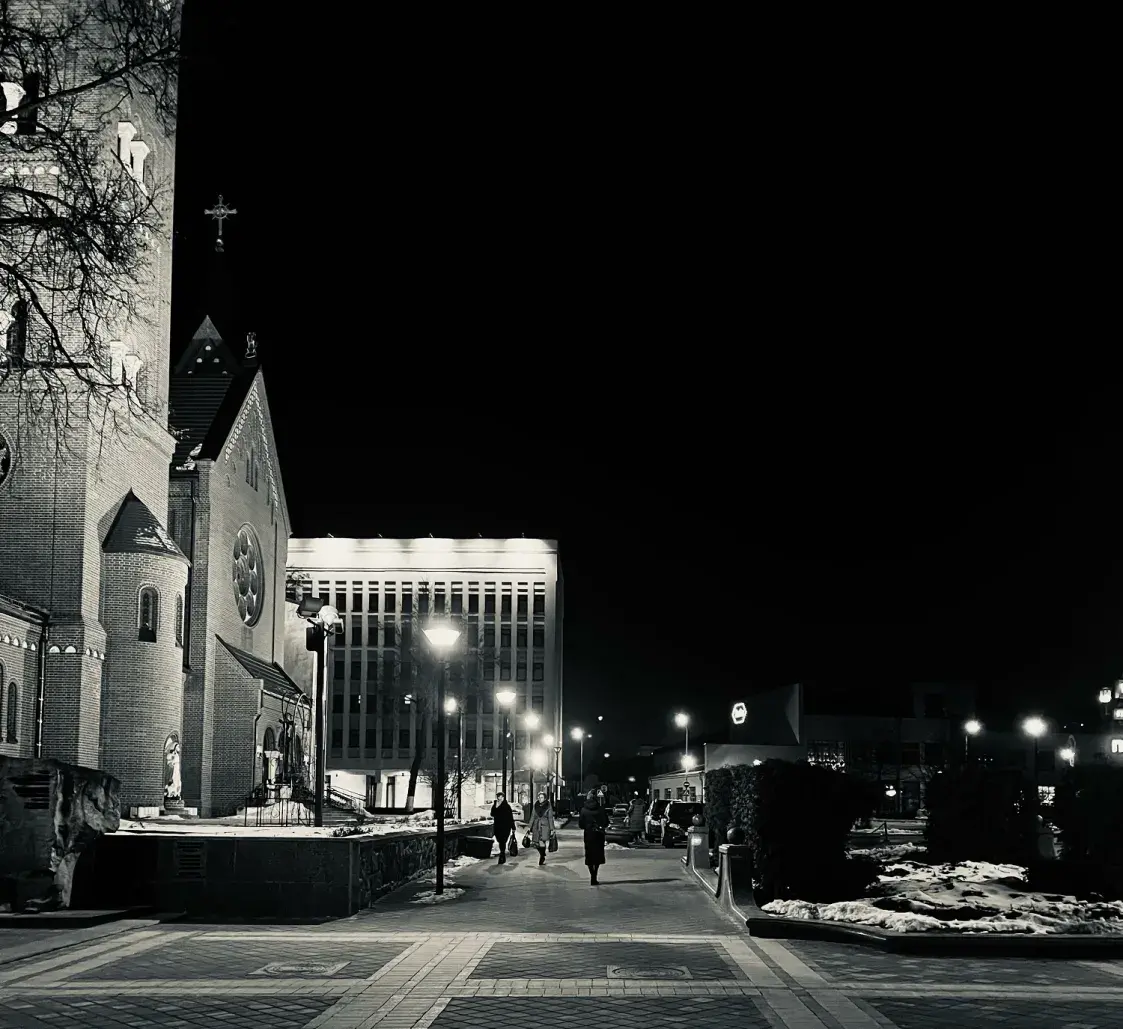
The hardest thing for me was to admit to my relatives and parents. My father was very strict, conservative in his views. Catholic. He died early of cancer, and then confessing to my mother alone made it easier for me. My mother understood and supported me, she still does. And my father... He never found out, but I think Dad guessed...
The biggest problem was telling the truth about myself to my aunt. She is a complicated person and very religious. Always trying to control our family life and mine too. She came with me to see a psychiatrist in Novinki, but luckily the doctor defended me to my aunt, explained everything to her and approved of my transition. After that visit, my aunt calmed down a bit.
It's not an illness
Transsexuality is no longer considered a mental pathology under ICD-11. The term "transsexualism" has been replaced by "gender nonconformity" and moved from the class "mental and behavioral disorders" to a new class called "conditions related to sexual health".
In Belarus, transgender transition is regulated by Ministry of Health Regulation No.163, approved in 2010. According to it, gender reassignment is performed only if there is a diagnosis of transsexualism. On average, the transition procedure takes two to two and a half years.
In Poland, for example, it is possible to make the transition much faster. According to Polish law, a transgender person has to sue their parents or guardians for wrong gender determination at birth. In this case, the parents are considered a party to the case and are given the opportunity to influence the proceedings.
"If the parents are 'in favour' of their child making the transition, the case is settled quickly, sometimes in three months. But if the parents are 'against', they can hinder or delay the legal process. Another negative thing about the Polish system is that since parents are one of the parties in court, they have the right to see the case file. This means that parents have access to expert reports, which often contain detailed information about the transgender person's sexual life," — explains Alice Sarmant.
In Belarus, a special commission makes the decision. The first step in the transition is to make an appointment with a sexologist at the outpatient department of the Republican Scientific and Practical Centre for Mental Health. This is the only specialist authorised to work with transgender people.
Then you have to see a sexologist and other doctors for at least a year; and spend about two weeks in the RNPC of Mental Health in Minsk. If the sexologist, based on the conclusions of other doctors and his or her own observations, diagnoses a person as transsexual, the person will be sent to a commission.
"The Interdepartmental Commission for Medical, Psychological and Social Rehabilitation of Persons with Sex Denial Syndrome" includes 15 people from the Ministries of Health, Defence, Internal Affairs, Justice and Education.
According to M.N., a human rights activist, transgender people complained that members of the commission, who had no medical training, often behaved in an intolerant manner and asked inappropriate questions. The activists managed to ensure that there was only one non-medical specialist on the commission. After this, the work of the commission became more correct, for example, transgender people were no longer required to provide details of their sex lives.
"I made the transition in 2012-2013. At that time, the commission included people from the police and the military recruitment office. They would ask me: 'How did you have sex?', 'How did you satisfy your wife - you were married, weren't you? I started fighting against this: we don't need people without medical education on the commission," — says Victoria M.
Also, says N.M., activists managed to make the commission's attitude towards transgender people softer, more loyal and positive.
In Belarus, after passing the first commission, transgender people receive permission to change their gender marker in the documents. Birth certificates and passports are replaced and issues with the military registration and enlistment office are solved. And this is not without its pitfalls. The fact is that people born before 2012 were assigned identification numbers, in which the gender indicated at birth was encoded. When documents are changed, the identification number does not change.
"A new passport with an old identification number is like a stigma. At the police, when they enter the identification number into the search engine when checking documents, the entry "Gender Change" appears in the line "Reason for Passport Replacement". That's it, the attitude of police officers to the person immediately changes - contempt and arrogance appear.
In addition, in our country, every major system considers it possible to create its own database: hospitals, banks. They put passport and photo scans into the computer, and then, when you enter identification number of the new passport, the system displays outdated information and photo that were before the transition. And you stand in the bank and explain to the employee what is going on", — shares her story Victoria M.
However, the first commission gives permission to change documents, but it is only after another year of observation - at the meeting of the second commission — that permission for hormone therapy and surgical operations can be obtained. But many transgender people start taking hormonal medication after the first commission, often without consultation and without the permission of an endocrinologist.
Activists have already raised this issue, but so far they have not been able to change the situation. Last year, at a training session organised by “Adaptation”, a doctor announced data that 70% of trans women and 33% of trans men in Belarus start taking hormonal medication without consulting a doctor. And this is an alarming fact, because the consequences of such a step can be severe and irreversible.
"Waiting a year for a second commission to start taking hormonal medication is difficult. The sexologist expects you to socialise into a new gender, and how can you socialise if it's very problematic to change your appearance without hormones?", — says Vl.
Besides, hormonal medication can only be prescribed at one medical facility, which is in Minsk, and transgender people from the periphery have to travel to the capital twice a month, which can be quite costly for some. Another problem is occasional disruptions in the supply of hormonal medication.
"Last year the supply of estradiol gels to Belarus was stopped because of the war, for example. This is a serious problem as the pills cannot give the same effect. While the supply of drugs to Russia was maintained, one could order delivery from there, but then the gels disappeared in Russia too. Some people use injections, which can be ordered from Japan, although they can take up to six months to be delivered. There are options for continuing hormone therapy, although of course it has become more difficult. Considering the doses, from my point of view, hormone therapy is very expensive," — shares A.
After transition, a transgender person needs to adapt to society in their new gender status. M.N.'s human rights activist unequivocally recommends a change of residence for people from small towns. In big cities, transgender people often have to look for a new job.
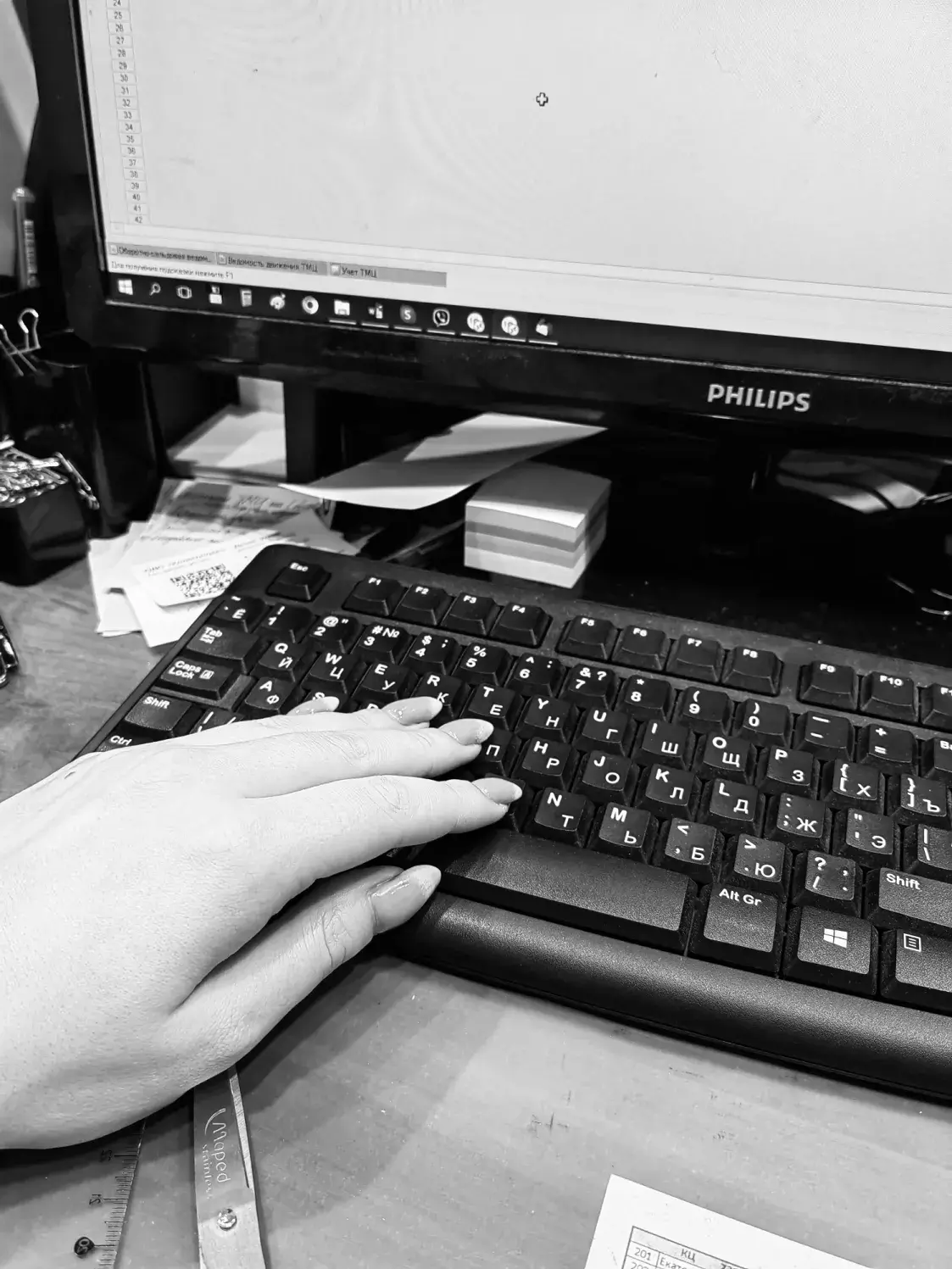
During the transitional period, I changed two jobs. I had to cheat: only after making sure that the employer was interested in me as a professional did I admit that my documents were in a man's name. I think if I had told them straight away that I was transgender, they would not have even talked to me.
It depends on what company you apply to. It is unlikely that a large company will hire me without my gender identity. Smaller companies are more relaxed about it. I am currently working as an accountant in a small company.
Everyone — to the concentration camps
Not only was there no sex in the Soviet Union but also no LGBT+ people. In modern Belarus the authorities are trying to return to the past: representatives of the Communist Party demanded the closure of gay nightclubs whose "values" are "not compatible with the traditional values of the Belarusian people".
The same "Minskaya Pravda" article "LGBT propaganda is also genocide" quotes Deputy of the House of Representatives Valiantsina Kursevich, who stated that she, as a doctor, is unequivocally against sex reassignment, as it brings serious psychological problems. She suggested "creating an association that would include representatives of education, health care, religious denominations and other public associations" to oppose LGBT propaganda.
Journalists of "Minsk Pravda" add that only spirituality, based on patriotic education, can be an alternative to the "Western destructiveness". "Soviet and modern Russian experience shows that the best option for 90% of troubled teenagers is a good coach, a reputable teacher and paramilitary camps, with all that marching and life in the woods. For ordinary teenagers it's hiking..." — this is the recipe given in the article "LGBT as the tip of the iceberg", on the website mlyn.by.
Will paramilitary camps help transgender teenagers who feel stressed because of the discrepancy between their self-perception and the expectations of others? Will it relieve them from depression and gender dysphoria?
Medical psychologist-sexologist E.S. believes that attitudes towards transgender people will only change if our society as a whole changes for the better.
"I can't say that Belarus' transition to IBC-11 will change anything. Doctors will write a new code and that's it. They won't rewire their psyches, they won't rewire their attitudes towards transgender people. Until our society changes, until the health care system and the culture of medical care change, the number in the IBC won't change anything," — she says.
The expert believes that the problem is not in the world standards — approaches to transgender issues have not changed significantly over the past ten years, but specifically in each society — Belarusian, Polish, Russian, Ukrainian, Lithuanian, etc.
"What we can do now is to be kinder to each other, to cultivate empathy, to deal with our own mental health, to invest energy, time and money in it: mental health should be developed as we develop the body. Thanks to this, we will have a healthier society, and the healthier the society, the more normally it treats different people", — sums up E.S.
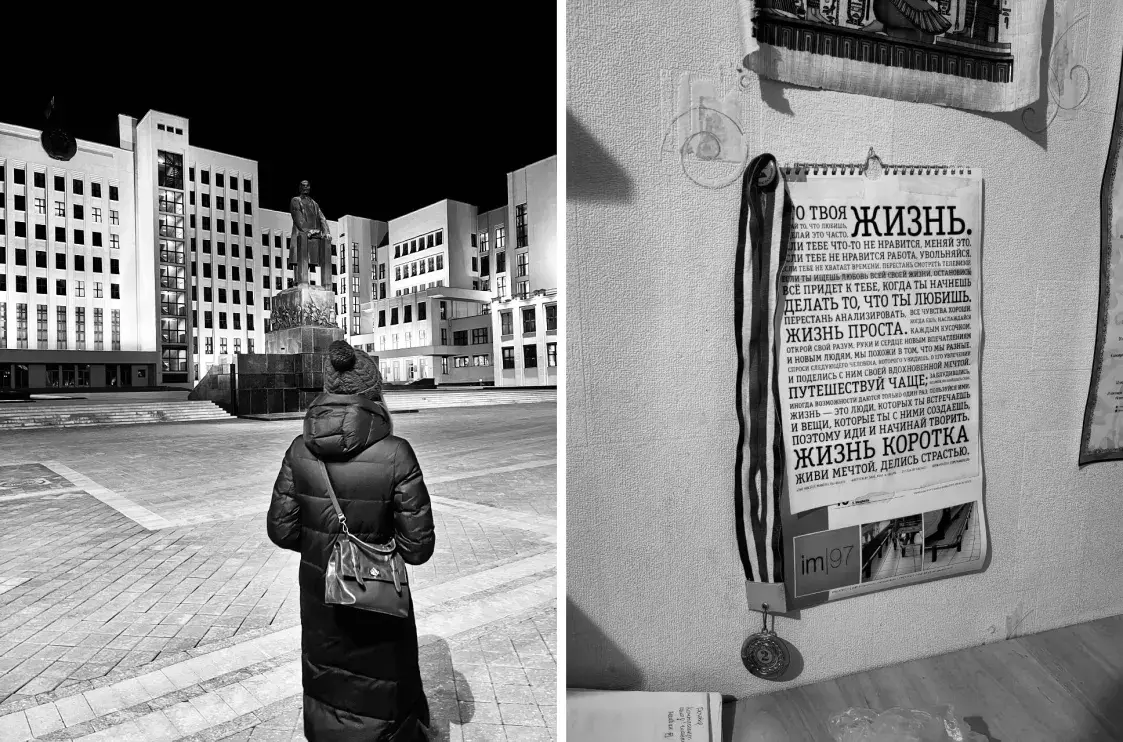
This is my life. I have made the transition and for over two years now I have been living in line with who I feel and have been since I was a child. I am living a much fuller life than I ever did before. Gender reassignment has helped me a lot and it has helped most of the transgender people I have come into contact with, and these people are quite useful and adequate members of Belarusian society.
Yes, sometimes people who did not need it make the transition. The very process of transition became one big psychological problem for them, which they weren't able to cope with, were unable to get on with their lives, engaged in prostitution and so on. But for those who really need it, gender reassignment helps them to live a full and happy life.
So why should we protect human rights?
Official statistics regarding transgender people are quite rare and difficult to find in open sources. In 2018, for the first time in 20 years, Belarus submitted a report to the UN Human Rights Committee. The report indicated that there are about 250 transgender people in total in Belarus.
Do these people really pose a threat to the state and society, as the Belarusian authorities want to show?
At the international conference, Belarusian medics announced that almost 70% of transgender people live in Minsk and Minsk region.
60% of trans women and 82% of trans men are officially employed. They have predominantly secondary education.
About 80% of trans women and 70% of trans men were brought up in full families. 6% of trans women and 29% of trans men had children before gender reassignment, 12% of trans men and 6% of trans women married after gender reassignment.
Even dry statistics show that transgender people are ordinary citizens of our country. And they have a right to their identity. And as Daniyar Orsekov pointed out, the Belarusian government should use the resources at its disposal to enhance the contentment and quality of life of all its citizens, rather than direct them towards discrimination against certain groups.
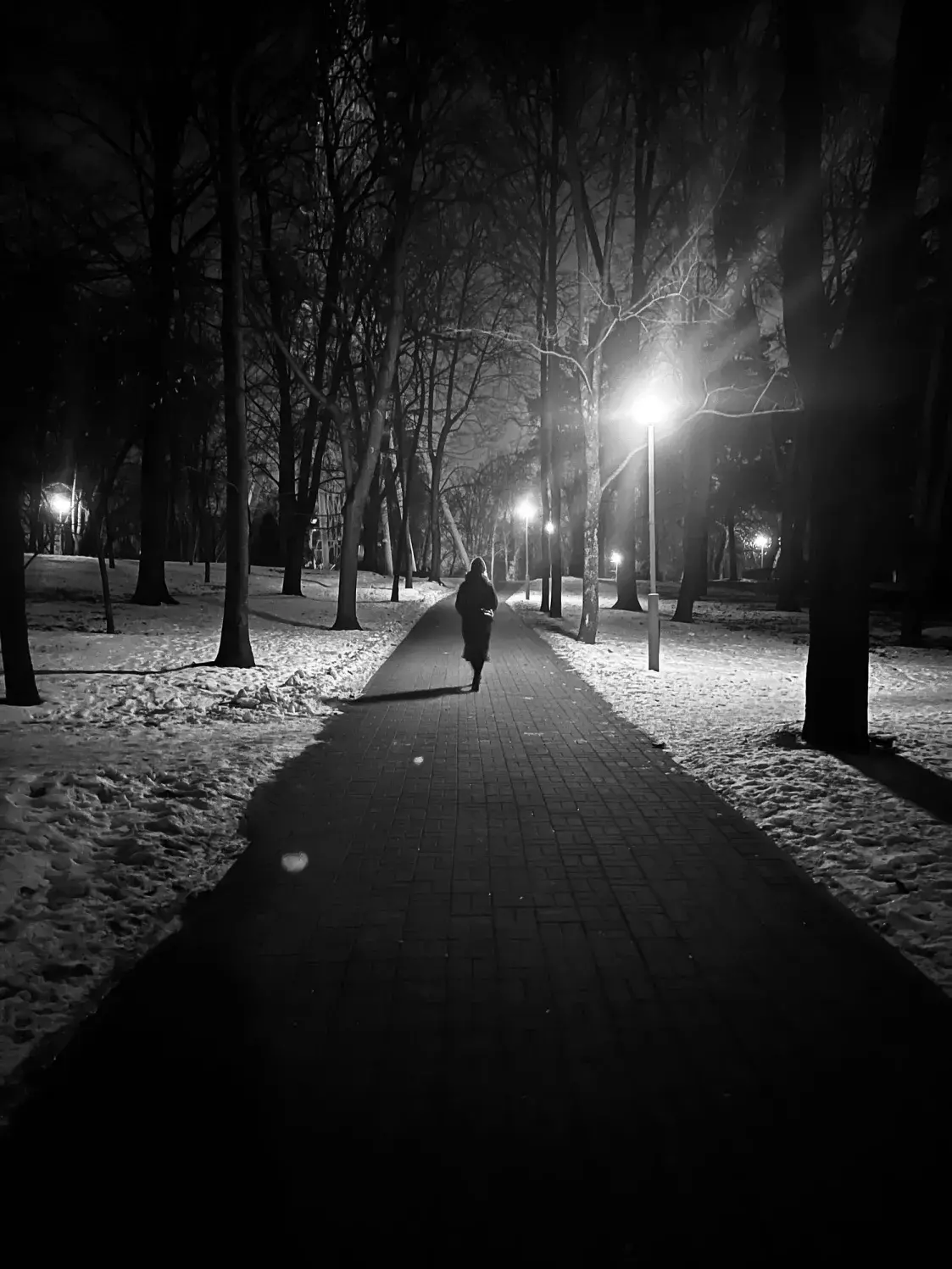
Idea, text, photo: Nadzeya Litvina



















